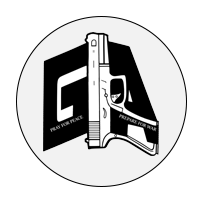Have you ever wondered how to balance the topics of child development and gun safety awareness in today’s world? It’s an essential conversation that more parents and teachers are having, especially in light of current events. Understanding child development is key to teaching kids about all aspects of life, including the crucial, and often complex, issue of gun safety.
The Importance of Understanding Child Development
Child development refers to the process in which children go through changes in skill development during their early years. Each child is unique, but there are general patterns that can help guide you in nurturing their growth.
Cognitive Development
Cognitive development is about how children think, explore, and figure things out. It’s the development of knowledge, problem-solving, and decision-making, which is crucial when it comes to understanding safety rules, including those about guns.
-
Stages and Age Ranges:
- Infancy (0-2 years): Infants learn about the world primarily through their senses and movements.
- Early Childhood (2-7 years): Kids begin to think symbolically and learn to use words and pictures to represent objects.
- Middle Childhood (7-11 years): Children start to think logically about concrete events.
- Adolescence (12 and up): Teens develop the ability to think about abstract and hypothetical concepts.
Emotional and Social Development
Emotional and social development refers to how kids understand their own feelings and those of others. This is critical in teaching respect for potentially dangerous objects like firearms.
-
Stages and Key Aspects:
- Infants: Develop attachment to primary caregivers.
- Toddlers: Start to show a wide range of emotions and form simple social interactions.
- School-Aged Children: Learn to manage emotions and navigate more complex social relationships.
- Adolescents: Build a more stable and complex sense of identity and social connections.
Why Gun Safety Awareness is Crucial
Gun safety is not just about knowing how to handle firearms but also understanding the significant responsibility that comes with it. With roughly 393 million civilian-owned firearms in the United States, education on gun safety can prevent unnecessary accidents and tragedies.
Statistics and Facts
- Child Injuries: Nearly 1,300 children in the U.S. die from gun-related injuries annually.
- Unintentional Shootings: Unintentional shootings involving children account for nearly 10% of these fatalities.
- Accessibility: Approximately 4.6 million American children live in homes with at least one loaded, unlocked firearm.
By understanding these facts, you can see why gun safety awareness should be part of child development education.
Integrating Gun Safety into Child Development
Teaching gun safety should be age-appropriate, taking into account the cognitive and emotional stages of your child.
For Younger Children
For children in the early stages, gun safety education focuses on basic rules and recognizing danger.
-
Simple Rules:
- Never touch a gun.
- Leave the area immediately.
- Inform an adult.
-
Repetition and Routine:
- Consistently remind them of these rules.
- Use role-playing for practice.
For Older Children and Adolescents
As children grow, they can handle more detailed and nuanced discussions about gun safety.
-
Responsible Handling:
- Teach them how firearms function.
- Emphasize the importance of never pointing a gun at someone.
-
Respect and Responsibility:
- Discuss the moral and legal responsibilities of gun ownership.
- If appropriate, include supervised training sessions.
The Role of Educational Programs
Programs like those offered by Green Line Arms can provide structured and professional training in gun safety. Such programs usually offer hands-on experiences and age-appropriate education that caters to all levels of knowledge and experience.
Benefits of Professional Training
- Expert Guidance: Expert instructors who can tailor courses to the participant’s level.
- Practical Experience: Safe, controlled environments for learning and practicing gun safety.
- Community Building: Opportunity for families to learn and practice together.
Recommendations for Parents
Parents play a key role in ensuring that their children understand and respect gun safety protocols. Here are actionable tips to help you integrate this critical aspect into your child’s development.
Open and Honest Communication
- Start Early: Begin conversations about safety when children show curiosity.
- Be Honest: Use straightforward language appropriate for their age and maturity.
- Encourage Questions: Let your children ask questions and answer them sincerely.
Secure Storage Solutions
- Locked and Unloaded: Always store guns unloaded and locked away.
- Separate Ammunition: Store ammunition in a separate, secure location.
- Regular Checks: Frequently check storage methods and restrictions.
Lead by Example
- Model Behavior: Follow the same safety rules you’re teaching to reinforce their importance.
- Practice Together: Engage in practice sessions as a family, if appropriate.
Conclusion
Child development and gun safety awareness are not mutually exclusive; they can and should go hand in hand. Understanding the various stages of your child’s cognitive and emotional growth can guide you in teaching them about the importance of gun safety in a way that is both meaningful and age-appropriate.
By engaging in open communication, leveraging professional resources like those offered by Green Line Arms, and modeling responsible behavior, you can help build a safer environment for your child. For expert guidance and training, visit Green Line Arms located at 1350 South Blue Angel Pkwy, Pensacola, Florida or visit their website at greenlinearms.com.




